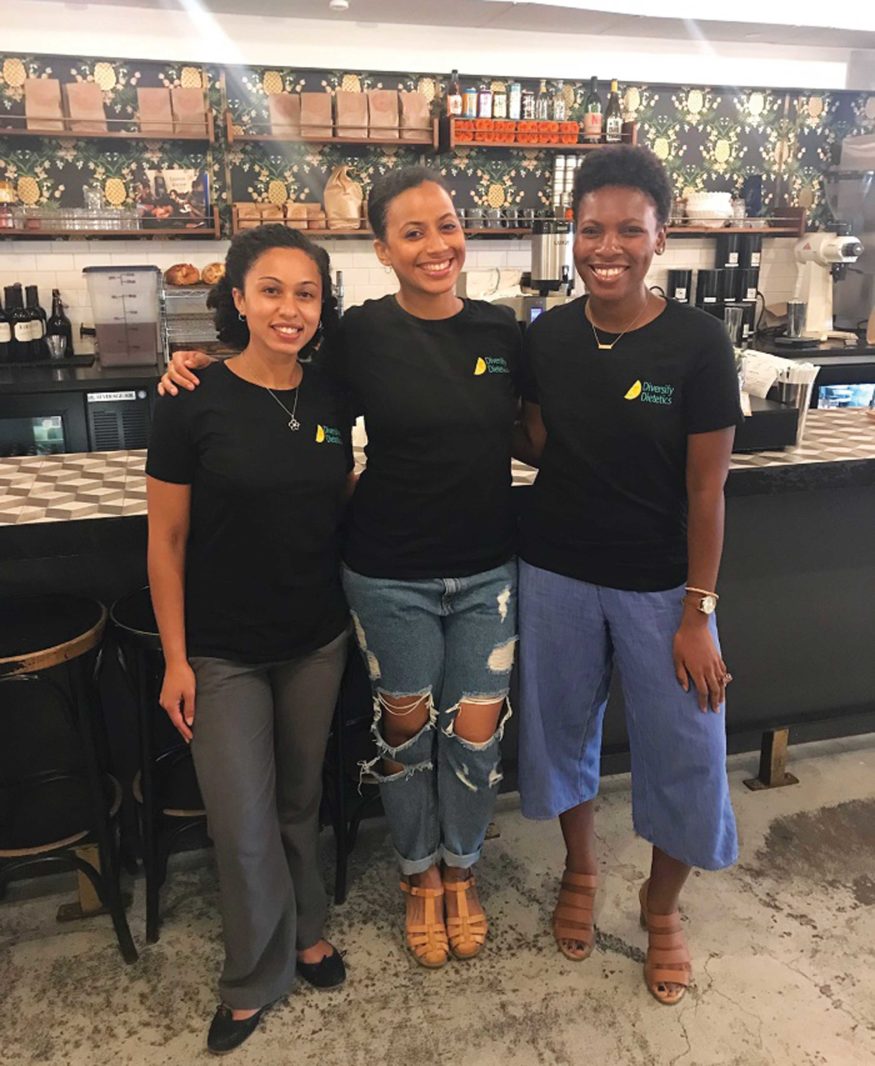If you hadn’t already realized, among news headlines and wellness apps popping up, the food we eat is integral to our long-term health and wellbeing. It can also be a powerful indicator of our likelihood of suffering from illnesses and diseases.
For the average person, navigating the food pyramid can be an overwhelming task. Luckily, registered dietitian nutritionists are committed to helping the public with this. But as Deanna Belleny, MPH, RDN, and founder of Diversify Dietetics puts it, “Food is so much more than what we put into our body. It’s also an extension of our identity and culture.”
In other words, it’s up to a diversified workforce to help diversified populations understand how they can eat healthy in a way that is culturally competent and approachable. And right now, the majority of registered dietitian nutritionists are white.
As one of the small number of RDNs of color, Belleny, who is black, co-founded the nonprofit Diversify Dietetics in April 2018. Her company’s goal is to increase diversity in her field. She works to empower students and young professionals from all backgrounds to join the next generation of nutrition experts.
Belleny is originally from Houston, Texas, and it is where she spent the majority of her career thus far. Houston is where she completed her bachelor’s and master’s degrees, her dietetic internship and first few jobs.
“I became interested in evaluating effective nutrition programs for communities, and I wanted to get broader in public health through systems change,” she says.
Today, she’s currently based in Massachusetts and works for the Center for Primary Care at Harvard Medical School.
Belleny says she was struck at how very few of the nutrition professionals she came across were people of color, especially during her internships and at conferences.
Tamara Melton, MS, RDN, CPHIMS, and Belleny’s co-founder of Diversify Dietetics, says that at a typical dietetic and nutrition conference, “out of thousands of people, you will maybe see six or seven people of color.”
In addition to both conscious and subconscious biases against nutrition students and professionals of color, there are structural barriers in the career pathway that might account for the lack of diversity in the field.

COURTESY OF DEANNA BELLENY
Diversity Dietetics team
According to Melton, it takes a minimum of five years to become a registered dietician nutritionist as you need a bachelor’s degree with the relevant coursework, an internship that runs for six to 12 months and is typically unpaid, and then pass a national standardized exam, of which there are associated fees.
With student loans, long-term unpaid work, and exam materials and fees, students from low-income and marginalized groups are at a disadvantage when pursuing a nutrition profession.
In addition to passing on the torch to students in need, Belleny says she believes that more diverse nutrition professionals will contribute to wider systems change in improving public health for all communities.
“The U.S. is getting more and more diverse and with more diverse practitioners in the field, we are able to better relate with patients and clients,” she says. “Especially since, as a society, what is considered healthy is a Eurocentric diet.”
Kale and quinoa are undoubtedly very healthy food options, but these ingredients may not fit into the culinary palate and customs of other cultures. “In some cases, nutritional advice does not resonate with some audiences that it is delivered to,” says Belleny. “For example, as when recommending all organic ingredients to a lower income community, because there are more affordable ways to get fresh and quality food.”
In addition, says Melton, “research has shown that professionals of color will stay and serve in communities of color longer” as opposed to white medical professionals who train in those areas but typically leave once they finish their education.
“Data has shown patients do better when they are advised by someone of similar culture,” she says. “Some reasons include something as simple as language barriers or knowing colloquialisms or cultural contexts.”
So, how exactly is Diversify Dietetics supporting and pushing forward a more diverse field?
The 501(c)3 organization offers resources such as career advice, scholarship referrals, job postings, workshops on professional development, a dynamic podcast, a robust mentorship program and country-wide meetups.
“We’re nowhere near where we want to be, but we want to help students get into internships, pass their exams, negotiate their first salaries and understand the various pathways in the industry,” says Melton.
The two co-founders are very active on social media, especially on Instagram where the Diversify Dietetics account has more than 5,000 followers. They regularly spotlight professionals of color, especially if they work in atypical settings such as the NFL or other big name brands.
“As a long-term goal, hopefully we can see a shift in health disparities and chronic diseases,” says Belleny. Always with this big picture in mind, Belleny and Melton are optimistic about ushering in the next generation of diverse nutrition experts, as well as healthier and well-nourished patients.



 4 min read
4 min read



